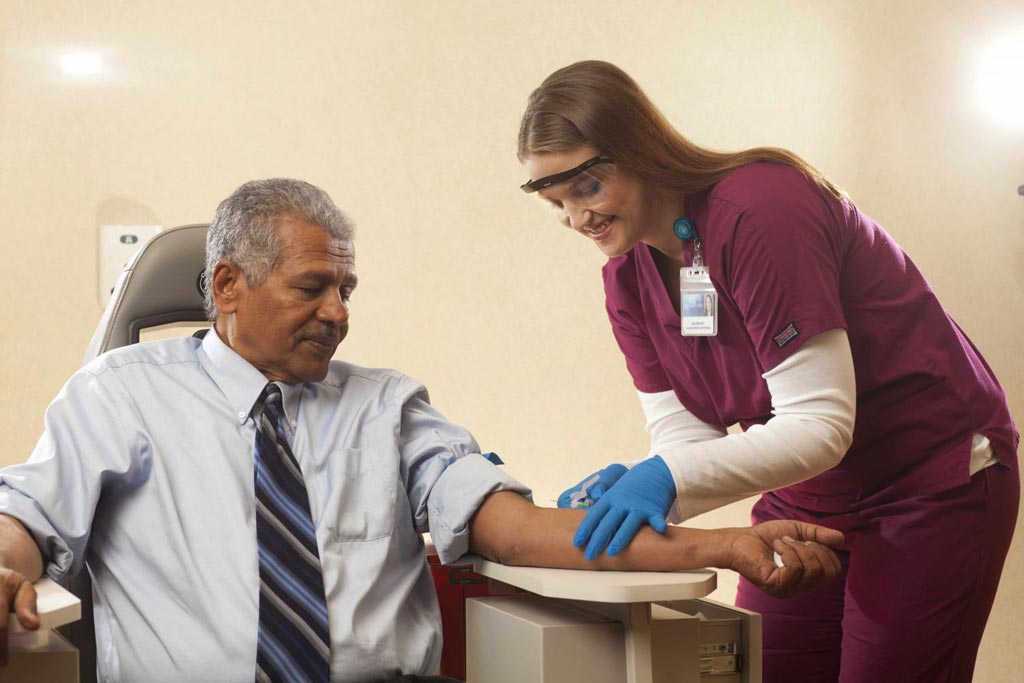Simple Test Improves Treatment for Colon Cancer Patients
By LabMedica International staff writers
Posted on 06 Jul 2017
Colorectal cancer is the fourth most common cancer in the USA and the second deadliest. There are four primary stages of colon cancer. Generally, with stage 2, the cancer has not spread to nearby lymph nodes or distant organs but has grown into or through the wall of the colon.Posted on 06 Jul 2017
An underused simple blood test could improve treatment for more than 1 in 6 of stage 2 colon cancer patients, and many patients who could benefit from the test likely are not receiving it. The blood test has been around for decades but is not broadly used across the different states.

Image: A health professional takes blood from a patient for the carcinoembryonic antigen (CEA) test (Photo courtesy of Mayo Clinic).
Scientists at the Mayo Clinic (Rochester, MN, USA) used data from the National Cancer Database for 40,844 patients, to look at benefits of a blood test that measures the protein called carcinoembryonic antigen, or CEA, in stage 2 colon cancer. Carcinoembryonic antigen can be found in higher levels in people with certain cancers, especially colon cancer. The patients were stage II colon adenocarcinoma patients undergoing curative intent resection. A novel risk stratification including both traditional high-risk features (T4 lesion, less than 12 lymph nodes sampled and poor differentiation) and elevated CEA was developed.
The investigators found that knowing these blood test results prior to treatment could have changed the classification for 17% of stage 2 colon cancer patients from average risk to high risk. That change could have altered treatment options, including whether to use chemotherapy. They also discovered that, for stage 2 patients who had surgery but not chemotherapy, the five-year survival rate was 66% for those with elevated protein levels and 76% for those without elevated levels. And for patients with elevated protein levels, those who had chemotherapy and surgery fared better than those who only had surgery.
Kellie Mathis, M.D., a colon and rectal surgeon and senior author of the study said, “The decision to give a patient chemotherapy after surgery is not a light one, and physicians must weigh the risks and benefits. We are currently using the blood test to help make these difficult decisions, and we suggest other physicians do the same. If a patient with a new diagnosis of stage 2 colon cancer has an elevated carcinoembryonic antigen level, physicians should consider chemotherapy in addition to surgery. There is no good reason for a physician to omit this blood test, and more work needs to be done to ensure that all patients receive it.” The study was published in the May 2017 issue of the Journal of Gastrointestinal Surgery.
Related Links:
Mayo Clinic










 Analyzer.jpg)



